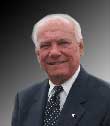
by Richard Warbrouck, President RFFOW
I hope all is as well as can be expected during this most difficult time. At this point it has been reported that six Seattle police officers and ten Seattle firefighters have tested positive for COVID-19. It appears that once the Coronavirus starts in a group it spreads like fire. The fear is that more firefighters, police officers and other crucial workers, doctors, nurses, and medics in Seattle, across Washington and the United States are contracting COVID-19, the ill- ness caused by the virus.
As of Tuesday April 2nd, 86 Seattle FD employees and 167 Seattle police employees have been quarantined or isolated. You can only imagine how this impacts staffing on a 24 hour day, 7 days a week basis. The Washington State Council of Firefighters (WSCFF) reported that at least 43 firefighters from 25 departments across the state have tested positive. At least 642 Washington state fire- fighters have gone into isolation or quarantine after being exposed to the virus or showing symptoms consistent with COVID-19. I can’t imagine what the situation will be when you receive this Newsletter.
Governor Inslee issued a proclamation clearing the way for LEOFF II retirees to return to active service as law enforcement officer or firefighter while continuing to receive their pension benefit. This change will enable skilled first responders to re- turn to service and help ease the burden on public safety staffing dur- ing the COVID-19 pandemic. This policy will be allowed through April 30, 2020.
A COVID-19 testing site for first responders is set to open in Coving- ton this week, according to city officials. The site will be at the former Covington Elementary School site and will be used for emergency operations, along with providing virus testing. “We are so thankful for our selfless first responders and want to ensure they can stay safe as they continue to serve our greater community,” said Covington Mayor Jeff Wagner. “By providing a dedicated testing site, we can identify cases more efficiently and make sure those who have contracted COVID-19 can stay safely away while those who remain healthy can continue to stay healthy.” According to Covington police Chief Andrew McCurdy, the site will operate about 10 hours per week (2 days a week).
The NYFD reported the busiest five days for the EMS in its history last week. The Coronavirus has also deeply affected the NYPD, which has 930 employees who tested positive as of Monday March 30, 2020.
On a brighter side, if you read the minutes of our March 11, 2020 meeting you are aware that I report- ed on the LEOFF I April Cost of Living Adjustment (COLA). DRS re- ported that the COLA increase effective April 1, 2020 is 2.14 percent. The increase will be on the April check.
The Governor has signed our bill HB 2051 into law. The bill was passed with only one friendly amendment submitted by Senator Christine Rolfes, Chair of the Senate Ways and Means Committee. When I testified on HB 2051 after it was passed by the House and was being considered by the Senate Ways and Means Committee, I explained that we are having difficulty filling some of the positions on pension boards dating back to 1919 and have worked well. The LEOFF I disability boards were established in 1969 effective 1970. I reminded the committee that the LEOFF I Retirement System was closed in 1977 and that no younger members are coming into the system to serve on these pension and disability boards. The bill will expand the eligibility to serve on the boards by allowing any active or retired firefighter or law enforcement officer who lives and pays taxes in the cities, county, fire district or fire authority served by the board, eligible for election to the board. Remember only the members under the jurisdiction of the board can vote in a board election. This is not a public election. I pointed out that these active and retired firefighters and law enforcement officers living in the community are not second-class citizens. They are taxpayers who can be elected as Mayor to the city council or to any city or county elected office, why can’t they be elected to these boards? When I pointed out to the committee chair who is a woman, that the pension boards administer the benefits for the surviving spouses of the de- ceased members. She asked if a surviving spouse can serve on these boards, I answered no, not at this time. I later received a call to ask if I would be opposed to an amendment to allow a surviving spouse to serve on a board. Of course, I responded that I would not. The more options we can get the better off we are. I know of several women who would be outstanding candidates and remember it’s the members who vote and decide. As a result, the Senate passed HB 2051 with the one amendment to allow a surviving spouse to be elected to a board and the House again passed the bill as amended.
Last year HB 2051 was introduced along with a senate companion bill SB 5920. When I first brought this issue to the Select Committee on Pension Policy Bill Dickinson of the LEOFF I Coalition said that he was not aware of any problems in filling the board positions, but if there were a change he would prefer that the active and retired firefighters and police officers living in the jurisdiction served by the board would have to be members of a Washing- ton State Retirement System. The committee was not able to take ac- tion on our request to have the committee submit a bill. We did however have the House Bill 2051 and Senate Bill 5920 introduced in the 2019 legislative session. Neither of the bills were passed as the legislature came to a close.
During the interim between 2019 and 2020 legislative sessions we went back to the Select Committee on Pension Policy to request the committee to endorse the two bills that were introduced in the 2019 legislative session in the 2020 legislative session. Again, Joyce Willms and Bill Dickinson requested the same amendment to only allow the active and retired officers who are members of the LEOFF I system to be eligible for election to the board.
The committee passed a motion to endorse the bills with the amendment. We didn’t feel that there was adequate time to debate this any further as we wanted the commit- tee’s endorsement. We felt that we would be able to address this amendment during the legislative process. We were surprised to learn that a Senator on the Select Committee on Pension Policy put the amendment on the Senate Bill. We pushed and got the House Bill passed in the House without the amendment and lobbied against an amendment in the Senate Ways and Means Committee as they considered the House Bill 2051. They did pass the House bill without the controversial amendment and with the friendly amendment to allow a surviving spouse to be elected to the board. The bill was then approved by the full Senate and House and signed by the Governor. All this controversy was for nothing. As I said before, anytime you can pass a bill with more than one option it’s to your advantage. Those involved can choose which option is to their advantage. I don’t believe restricting an active or retired firefighter or law enforcement officer to be members of the Washington State Retirement System is necessary. We may never have a retired officer from out of state elected to a board. If there is a situation where a brother or sister of a firefighter or law enforcement officer retires from out of state, moves back to Washington state and is willing to serve on the board it would be to our advantage. If a retired officer from out of state who had excellent qualifications, maybe a former union or guild officer or perhaps one who served on a pension or disability board, it would be to our advantage. Again, if they can be elected as Mayor or to the city council they should be eligible for election to the board. In most cases a retired officer from out of state would be better than a citizen at large, another city official or a state pension or disability board.
The only reason I explained all this is to educate you on the legislative process and to point out that it’s not in our best interest to have two groups representing the same LEOFF I retirees. It can give the legislators an excuse to do nothing when two groups representing the same class of employees or retirees have different opinions. Luckily in our case looking back over several issues it hasn’t made much of a difference.
I received an email with the WSRDSPOA Washington State Retired Deputy Sheriffs and Police Officers Association with their website logo. The WSRDSPOA to my knowledge is the only organization that is affiliated with the so-called Coalition. I can’t determine who authored the five-page document, a WSRDSPOA officer, board member or Joyce Willms the Executive Director and lobbyist for the LEOFF I Coalition. On page 3 in the second paragraph it states, “My name is Joyce Willms and I’m the Executive Director and lobbyist for the LEOFF I Coalition.” If it was written by Ms. Willms, she goes overboard in congratulating herself, everyone in the WSRDSPOA and the Coalition for getting HB 2051 passed. With her generosity in thanking everyone she didn’t mention the RFFOW who first brought this issue to the Select Committee, had HB 2051and the companion bill SB 5920 drafted and testified at each hearing as the bill progressed. We also contacted the Democrat Senators in leadership positions to get the bill out of the Senate Rules and on the Senate floor for a vote. We lobbied to remove the amendment to make only those active and retired officers who are members of the LEOFF I Retirement System eligible for election to the board and for the only amendment that passed to allow surviving spouses eligible for election to a board.
Ken Crowder, Director Washing- ton State Retired Police Officers Association worked very closely with the prime sponsor of the bill, Representative John Lovick during the session. As always there are as many errors in the document by Joyce Willms as there are paragraphs. Apparently, Joyce Willms the Executive Director and lobbyist for the LEOFF I Coalition and Bill Dickinson never read the bill signed by the Governor or they wanted to put out incorrect information. In the first paragraph on page two, Joyce stated “The bill passed clarifying eligibility of who can serve on local disability boards as only LEOFF members, as well as expanding eligibility to serve on disability boards to surviving spouses of LEOFF I members.”
On page three of House Bill 2051 it clearly states:
(2) If no eligible regularly employed or retired firefighters are willing or able to be elected to the board un- der subsection (1) of this section, then the following individuals may be elected to the board under sub- section (1) of this section:
(a) Any active or retired firefighters who reside within the juris- diction served by the board. This includes active and retired firefighters under this chapter and chapters 41.18, 41.26, and 52.26 RCW:
(b) The widow or widower of a firefighter subject to the juris- diction of the board.
Seems very clear to me. Stay safe.
Follow us on Facebook